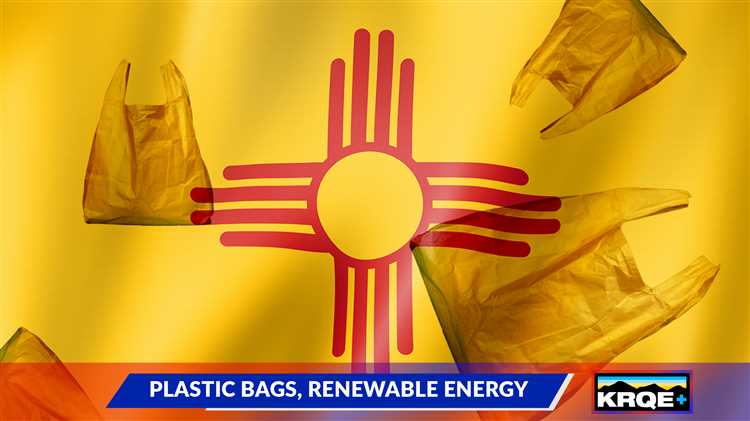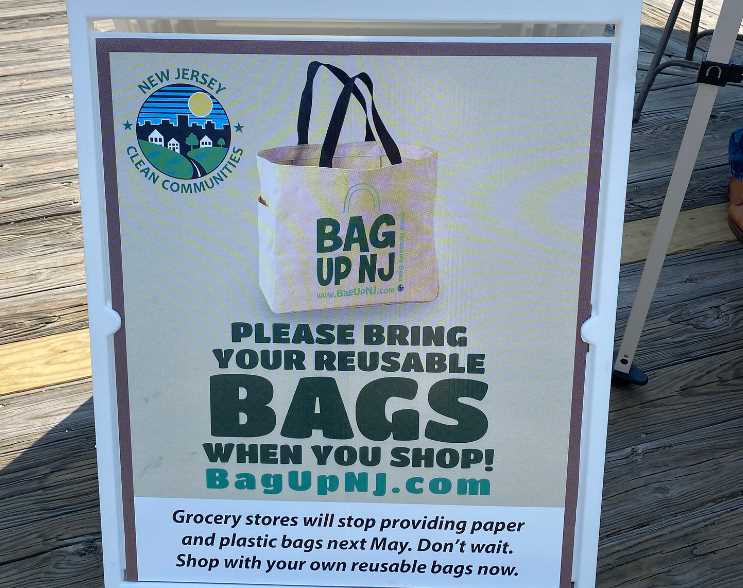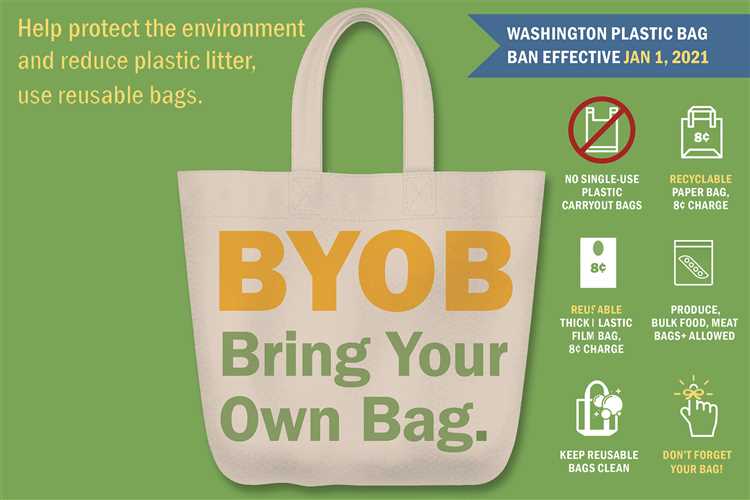In today’s rapidly changing world, the need for sustainable solutions has become more pressing than ever. The negative impact of plastic bags on the environment has been widely acknowledged, leading many countries and cities to implement plastic bag bans. While these bans are a step in the right direction, they alone are not enough to address the larger issue of environmental sustainability. The integration of renewable energy into our daily lives is crucial in bridging the gap and moving towards a more sustainable future.
Plastic bags have become a symbol of our throwaway culture and contribute significantly to plastic pollution. These non-biodegradable bags take hundreds of years to decompose, releasing harmful chemicals and causing harm to wildlife and ecosystems. Plastic bag bans have been successful in reducing plastic waste and encouraging people to adopt more sustainable alternatives, such as reusable bags. However, the problem of plastic pollution extends beyond just plastic bags.
Renewable energy, on the other hand, offers a sustainable solution to our growing energy needs. Unlike fossil fuels, which contribute to greenhouse gas emissions and climate change, renewable energy sources such as solar, wind, and hydro power are clean and abundant. By harnessing these renewable sources, we can reduce our reliance on non-renewable resources and mitigate the negative impact of climate change. The integration of renewable energy into our daily lives, from powering our homes to fueling our transportation systems, is crucial in creating a more sustainable and environmentally-friendly society.
By connecting the plastic bag ban with renewable energy initiatives, we can create a comprehensive approach towards sustainability. For example, governments and organizations can invest in renewable energy projects that specifically focus on recycling plastic waste and converting it into energy. This not only addresses the issue of plastic pollution, but also provides a renewable source of energy. Additionally, encouraging the use of sustainable materials for the production of reusable bags, such as biodegradable or recycled materials, further contributes to the overall goal of environmental sustainability.
In conclusion, the plastic bag ban is an important step towards reducing plastic pollution, but it is just one piece of the puzzle. By integrating renewable energy into our daily lives and connecting it with sustainable solutions, we can bridge the gap towards a more environmentally conscious future. Through investments in renewable energy projects and the use of sustainable materials, we can minimize our ecological footprint and create a world that is not only plastic-free, but also powered by clean and renewable energy sources.
- The Environmental Impact of Plastic Bags
- 1. Pollution
- 2. Resource Depletion
- The Need for Sustainable Solutions
- The Plastic Bag Ban: A Step Towards Change
- Renewable Energy: A Key Player in Environmental Protection
- Question-answer:
- What is the purpose of the plastic bag ban?
- How effective has the plastic bag ban been so far?
- What are the alternatives to plastic bags?
- How does the plastic bag ban contribute to renewable energy?
- Are there any disadvantages to the plastic bag ban?
The Environmental Impact of Plastic Bags

Plastic bags have become an incredibly popular and convenient way for people to carry their purchases, but their environmental impact is quite significant. The extensive use of plastic bags has led to a number of environmental problems that threaten the well-being of our planet.
1. Pollution
One of the major concerns regarding plastic bags is their contribution to pollution. Plastic bags are not biodegradable, which means they cannot break down naturally in the environment. As a result, they accumulate in landfills and can take hundreds of years to decompose. This leads to increased landfill waste and pollution of the surrounding areas.
Moreover, plastic bags are often littered, ending up in rivers, oceans, and other natural habitats. This not only affects the aesthetic appeal of the environment but also poses a grave threat to marine life. Birds, turtles, and other marine animals often mistake plastic bags for food, resulting in their injury or death.
2. Resource Depletion

Plastic bags are made from non-renewable resources such as petroleum and natural gas. These resources take millions of years to form and are rapidly being depleted to meet the increasing demand for plastic bags. The extraction and production of these resources also contribute to air and water pollution, further exacerbating the environmental impact.
In addition, the production of plastic bags requires significant amounts of energy. This energy usually comes from fossil fuels, which release greenhouse gases into the atmosphere, contributing to climate change.
It is imperative that we recognize the environmental consequences of our plastic bag consumption and take steps to reduce their use. By opting for reusable alternatives such as cloth bags or paper bags made from recycled materials, we can significantly reduce our ecological footprint and help protect the environment for future generations.
The Need for Sustainable Solutions
In today’s world, finding sustainable solutions has become more important than ever. With the growing concern over climate change, excess waste, and limited natural resources, it is crucial for us to find ways to reduce our environmental impact and promote a more sustainable future.
Plastic bags, for example, have become a major environmental issue. These single-use bags are not biodegradable, and they often end up in our oceans and landfills, causing harm to marine life and the overall ecosystem. Banning plastic bags and promoting reusable alternatives is one step towards a more sustainable solution.
Renewable energy is another critical aspect of sustainable solutions. Fossil fuels are finite resources and their extraction and consumption contribute to carbon emissions and air pollution. Embracing renewable energy sources such as solar, wind, and hydro power can help reduce our reliance on fossil fuels and mitigate the effects of climate change.
However, simply banning plastic bags and transitioning to renewable energy alone is not enough. It is essential to bridge the gap between these two aspects and implement a holistic approach to sustainability. This can be achieved through education, awareness campaigns, and incentivizing sustainable practices.
Government policies play a significant role in driving sustainable solutions. Implementing regulations that promote the use of renewable energy, providing financial incentives for businesses to adopt sustainable practices, and encouraging recycling initiatives can have a significant impact on our environment.
In conclusion, the need for sustainable solutions is evident. By addressing issues such as plastic waste and transitioning to renewable energy sources, we can create a more sustainable future for generations to come. It is crucial for individuals, businesses, and governments to work together towards finding innovative and effective solutions that prioritize the well-being of our planet.
The Plastic Bag Ban: A Step Towards Change

The plastic bag ban is an essential step in the journey towards sustainability. Single-use plastic bags have become a significant environmental issue, causing harm to our planet and wildlife. By implementing a ban on these bags, we can start reducing our plastic footprint and moving towards more sustainable, eco-friendly alternatives.
Plastic bags are a major source of pollution, with millions of bags ending up in our oceans, rivers, and landfills each year. These bags take hundreds of years to decompose, leaching harmful chemicals into the environment and posing a threat to marine life.
By banning plastic bags, we can protect our ecosystems and mitigate the damage caused by them. This ban will encourage individuals and businesses to switch to reusable bags made from sustainable materials such as cotton or jute. These alternatives are durable, washable, and biodegradable, making them a much better choice for the environment.
Moreover, the plastic bag ban can also create a shift in consumer behavior. By eliminating the convenience of single-use bags, people will be compelled to adopt more sustainable practices. They may start carrying their own reusable bags or opting for paper bags or cardboard boxes at checkout. This shift in behavior will not only reduce plastic waste but also promote a culture of sustainability.
Implementing a plastic bag ban is not without its challenges. It requires coordination between government bodies, businesses, and consumers. However, various regions and countries have successfully implemented such bans and have experienced positive outcomes. These bans have led to a significant reduction in plastic waste and prompted the development of innovative alternatives.
In conclusion, the plastic bag ban is a crucial step towards creating a more sustainable future. By eliminating single-use plastic bags, we can significantly reduce plastic pollution and promote the use of eco-friendly alternatives. This ban also has the potential to change consumer behavior and foster a culture of sustainability. It is an essential part of bridging the gap towards sustainable solutions and creating a better world for future generations.
Renewable Energy: A Key Player in Environmental Protection

Renewable energy is increasingly recognized as a crucial element in the fight against climate change and environmental degradation. Unlike fossil fuels, which release harmful greenhouse gases and contribute to air pollution, renewable energy sources provide clean and sustainable alternatives. By harnessing natural resources such as wind, solar, hydro, and geothermal power, renewable energy offers a range of benefits that extend beyond reducing carbon emissions.
One of the key advantages of renewable energy is its ability to mitigate the negative impacts of climate change. As renewable energy technologies become more efficient and affordable, they provide a viable solution to reduce reliance on fossil fuels. This transition decreases greenhouse gas emissions and helps to maintain the Earth’s delicate ecological balance. Renewable energy can also help to combat air pollution by reducing the release of pollutants such as sulfur dioxide and nitrogen oxides, which have detrimental effects on human health and the environment.
Another significant benefit of renewable energy is its potential to create new job opportunities and foster economic growth. The development and deployment of renewable energy projects require skilled workers in various fields, including engineering, manufacturing, installation, operation, and maintenance. This, in turn, generates employment opportunities and supports local economies. Moreover, the shift towards renewable energy can decrease energy dependence on imported fossil fuels, reducing trade deficits and enhancing energy security.
Furthermore, renewable energy sources are abundant and widely distributed, providing opportunities for decentralization and energy independence. By harnessing renewable energy, communities and individuals can have greater control over their energy production and consumption. This can lead to increased resilience against energy price fluctuations and supply disruptions, as well as empower communities to develop sustainable and self-sufficient energy systems.
Lastly, renewable energy plays a crucial role in promoting environmental stewardship and raising awareness about the importance of sustainable practices. By embracing renewable energy, individuals, businesses, and governments demonstrate a commitment to reducing their carbon footprint and preserving natural resources for future generations. This can inspire others to take similar actions, resulting in a collective effort to create a more sustainable and environmentally conscious society.
In conclusion, renewable energy is a key player in environmental protection, offering cleaner and more sustainable alternatives to fossil fuels. Its ability to mitigate climate change, reduce air pollution, create jobs, foster economic growth, enhance energy security, and promote environmental stewardship positions renewable energy as a crucial element in building a more sustainable future.
Question-answer:
What is the purpose of the plastic bag ban?
The purpose of the plastic bag ban is to reduce the use of single-use plastic bags and promote the use of reusable bags, in order to decrease plastic waste and its negative impact on the environment.
How effective has the plastic bag ban been so far?
The effectiveness of the plastic bag ban varies depending on the region and the level of enforcement. In some areas, the ban has significantly reduced the use of plastic bags, while in others, there may be challenges in implementation and compliance.
What are the alternatives to plastic bags?
There are several alternatives to plastic bags, including reusable bags made from fabric, paper bags made from recycled materials, and compostable bags made from plant-based materials. These alternatives are more sustainable and have less impact on the environment compared to single-use plastic bags.
How does the plastic bag ban contribute to renewable energy?
The plastic bag ban indirectly contributes to renewable energy by reducing the demand for fossil fuels used in the production and disposal of plastic bags. With the decrease in plastic bag usage, there is less need for petroleum-based plastic production, leading to a reduction in greenhouse gas emissions and a shift towards more sustainable energy sources.
Are there any disadvantages to the plastic bag ban?
While the plastic bag ban has numerous benefits, there are also some potential disadvantages. For example, some argue that reusable bags may require more resources to produce and have a higher carbon footprint. Additionally, there may be challenges in getting people to adopt reusable bags and finding suitable alternatives in certain situations, such as for sanitary or medical purposes.